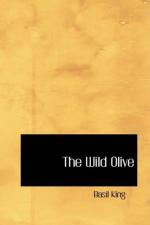In taking these steps he could not but see that what would be feasible in case of his death must be equally feasible now; but he had two reasons for not attempting it. The first was definite and prudential. He was unwilling to risk anything that could connect him ever so indirectly with the life of Norrie Ford. Secondly, he was conscious of a vague shrinking from the payment of this debt otherwise than face to face. Apart from considerations of safety, he was unwilling to resort to the commonplace channels of business as long as there was a possibility of taking another way.
Not that he was eager to see her again. He had questioned himself on that point, and knew she had faded from his memory. Except for a vision of fugitive dark eyes—eyes of Beatrice Cenci—he could scarcely recall her features. Events during the last six years had pressed so fast on each other, life had been so full, so ardent, each minute had been so insistent that he should give it his whole soul’s attention, that the antecedent past was gone like the passion no effort can recapture. As far as he could see her face at all, it looked at him out of an abyss of oblivion to which his mind found it as hard to travel back as a man’s imagination to his infancy.
It was with some shame that he admitted this. She had saved him—in a sense, she had created him. By her sorcery she had raised up Herbert Strange out of the ruin of Norrie Ford, and endowed him with young vigor. He owed her everything. He had told her so. He had vowed his life to her. It was to be hers to dispose of, even at her caprice. It was what he had meant in uttering his parting words to her. But, now, that he had the power in some degree, he was doing nothing to fulfil his promise. He had even lost the desire to make the promise good.
It was not difficult to find excuses for himself. They were ready-made to his hand. There was nothing practical that he could do except what he had done about the money. Life was not over yet; and some day the chance might come to prove himself as high-souled as he should like to be. If he could only have been surer that he was inwardly sincere he would not have been uneasy over his inactivity.
Then, within a few minutes, the thing happened that placed him in a new attitude, not only toward the Wild Olive, but toward all life.
Business with the head office detained him in Buenos Aires longer than he had expected. It was business of a few hours at a time, leaving him leisure for the theatres and the opera, for strollings at Palermo, and for standing stock-still watching the procession of carriages in the Florida or the Avenida Sarmiento, in the good Bonarense fashion. He was always alone, for he had acquired the art—none too easy—of taking pleasure without sharing it.




